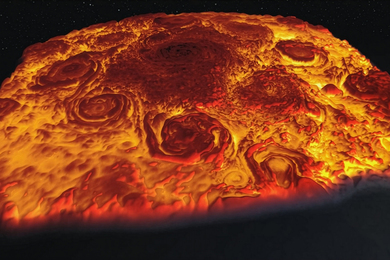Whether on Facebook or in Second Life, on their mobile phones or in their classrooms, students are learning that few today succeed without collaboration.
But the stakes for successful collaboration are higher than ever. Can today's middle schoolers, collaborating on an assignment with classmates online, become tomorrow's leaders, bridging distance and difference to face the global challenges of their time?
Collaborating to fight climate change
Enter MIT's Education Arcade, a research group of the Comparative Media Studies program, and the Scheller Teacher Education Program. With major funding from the National Science Foundation, these groups and the Smithsonian Institution are developing a "curated game" around climate change, called Mass Extinction. Over eight weeks in the spring of 2011, Mass Extinction players will explore a series of web pages, simulations, and live events at the Smithsonian and affiliate museums around the country. Together, players will solve puzzles, collect data, do web searches, and engage in on-line debate, all in the process of unraveling a mystery that blends a science-fiction scenario with the all-too-real issue of climate change.
Through the humanities, re-engaging children with science
The scientific process is a mystery to many children, and worse, they often lack the inspiration to try to learn. But games, particularly those played online, can re-engage kids with science.
Mass Extinction — and future curated games developed within Comparative Media Studies and the School of Humanities, Arts and Social Sciences — demonstrate the educational power of games for incorporating museum collections, research, and expertise in reaching this young audience, an audience whose passion for both the humanities and sciences the world depends on.
New game will teach students collaboration skills--and might help fix climate change in the process
Publication Date:

Credits:
Andrew Whitacre





